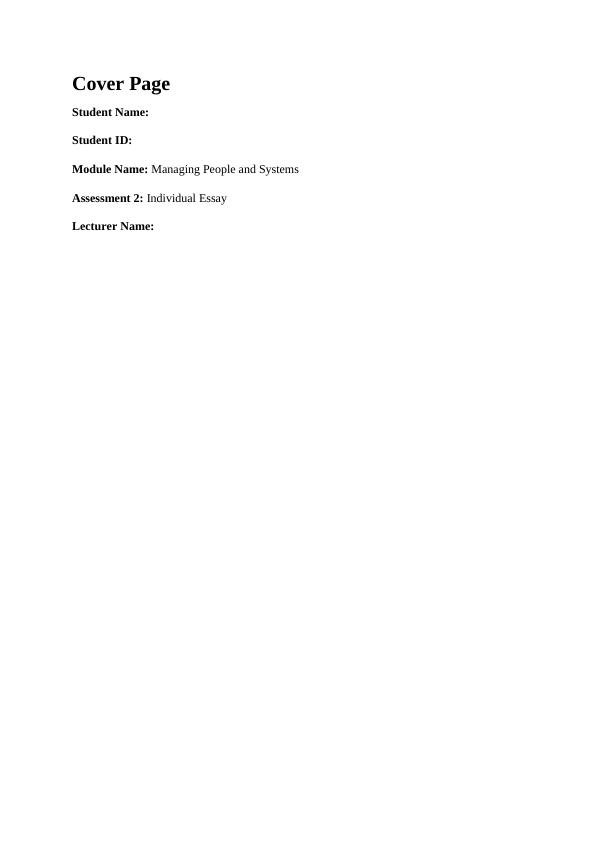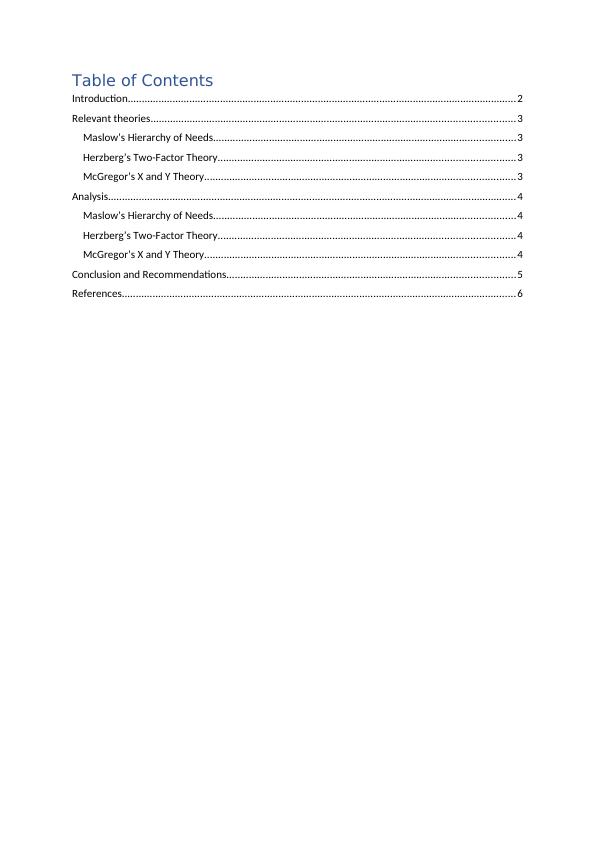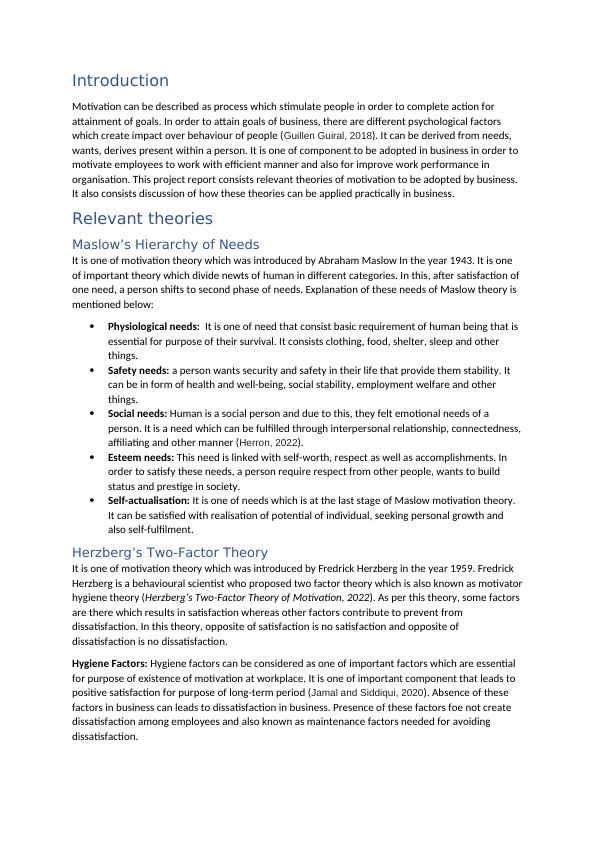Motivation Theories and Their Practical Application in Business
7 Pages2152 Words170 Views
Added on 2023-06-10
About This Document
This essay discusses the relevant theories of motivation, including Maslow's Hierarchy of Needs, Herzberg's Two-Factor Theory, and McGregor's X and Y Theory, and how they can be applied practically in business. It also provides an analysis of each theory and recommendations for businesses to improve employee motivation.
Motivation Theories and Their Practical Application in Business
Added on 2023-06-10
ShareRelated Documents
End of preview
Want to access all the pages? Upload your documents or become a member.
Principles of Management Assignment
|7
|1073
|155
Description of Motivation Theory
|7
|1025
|12
Chapter 7 – motivation concepts PDF
|4
|1456
|264
Motivation: Content Theories and Criticisms
|12
|557
|391
Management Assignment | Management Skills
|9
|2212
|112
HI 6005 - Management and Organisations in a Global Environment
|24
|6921
|252



